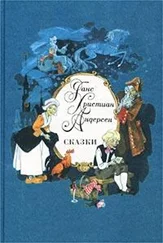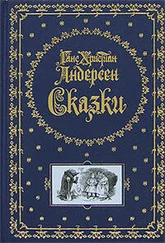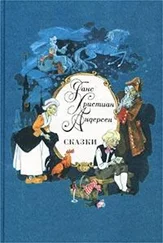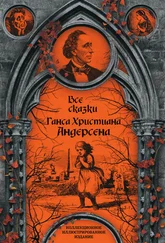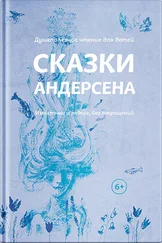Ганс Андерсен - O. T., A Danish Romance
Здесь есть возможность читать онлайн «Ганс Андерсен - O. T., A Danish Romance» — ознакомительный отрывок электронной книги совершенно бесплатно, а после прочтения отрывка купить полную версию. В некоторых случаях можно слушать аудио, скачать через торрент в формате fb2 и присутствует краткое содержание. Жанр: foreign_prose, literature_19, Европейская старинная литература, foreign_antique, на английском языке. Описание произведения, (предисловие) а так же отзывы посетителей доступны на портале библиотеки ЛибКат.
- Название:O. T., A Danish Romance
- Автор:
- Жанр:
- Год:неизвестен
- ISBN:нет данных
- Рейтинг книги:4 / 5. Голосов: 1
-
Избранное:Добавить в избранное
- Отзывы:
-
Ваша оценка:
- 80
- 1
- 2
- 3
- 4
- 5
O. T., A Danish Romance: краткое содержание, описание и аннотация
Предлагаем к чтению аннотацию, описание, краткое содержание или предисловие (зависит от того, что написал сам автор книги «O. T., A Danish Romance»). Если вы не нашли необходимую информацию о книге — напишите в комментариях, мы постараемся отыскать её.
O. T., A Danish Romance — читать онлайн ознакомительный отрывок
Ниже представлен текст книги, разбитый по страницам. Система сохранения места последней прочитанной страницы, позволяет с удобством читать онлайн бесплатно книгу «O. T., A Danish Romance», без необходимости каждый раз заново искать на чём Вы остановились. Поставьте закладку, и сможете в любой момент перейти на страницу, на которой закончили чтение.
Интервал:
Закладка:
“And envy our golden freedom!” said Wilhelm.
“Perhaps he derides it,” answered Otto. “He is confined to his chamber and the small courts behind the beam-lattice; we are confined to the coast; we cannot fly forth with the ships into the mighty, glorious world. We are also fastened with a chain, only ours is somewhat longer than that of the prisoner. But we will not think of this; let us go down to where the beautiful ladies are walking.”
“To see and to be seen,” cried Wilhelm. “‘Spectatum veniunt; veniunt spectentur ut ipsae,’ as Ovid says.”
The friends quitted the wall.
“There comes my scholar, little Jonas!” cried Wilhelm. “The boy was better dressed than at his last appearance; quickly he pulled his little cap off and stood still: a young girl in a wretched garb held him by the hand.
“Good day, my clever lad!” said Wilhelm, and his glance rested on the girl: she was of a singularly elegant form; had she only carried herself better she would have been a perfect beauty. It was Psyche herself who stood beside Cupid. She smiled in a friendly manner; the little lad had certainly told her who the gentlemen were; but she became crimson, and cast down her eyes when Wilhelm looked back after her: he beckoned to Jonas, who immediately came to him. The girl was his sister, he said, and was called Eva. Wilhelm nodded to her, and the friends went on.
“That was a beautiful girl!” said Wilhelm, and looked back once more. “A rosebud that one could kiss until it became a full blown rose!”
“During the experiment the rosebud might easily be broken!” answered Otto; “at least such is the case with the real flower. But do not look back again, that is a sin!”
“Sin?” repeated Wilhelm; “no, then it is a very innocent sin! Believe me, it flatters the little creature that we should admire her beauty. I can well imagine how enchanting a loving look from a rich young gentleman may be for a weak, feminine mind. The sweet words which one can say are as poison which enters the blood. I have still a clear conscience. Not ONE innocent soul have I poisoned!”
“And yet you are rich and young enough to do so,” returned Otto, not without bitterness. “Our friends precede us with a good example: here come some of our own age; they are acquainted with the roses!”
“Good evening, thou good fellow!” was the greeting Wilhelm received from three or four of the young men.
“Are you on Thou-terms with all these?” inquired Otto.
“Yes,” answered Wilhelm; “we became so at a carouse. There all drank the Thou-brotherhood. I could not draw myself back. At other times I do not willingly give my ‘thou’ to any but my nearest friends. Thou has something to my mind affectionate and holy. Many people fling it to the first person with whom they drink a glass. At the carouse I could not say no.”
“And wherefore not?” returned Otto; “that would never have troubled me.”
The friends now wandered on, arm-in-arm. Later in the evening we again meet with them together, and that at the house of a noble family, whose name and rank are to be found in the “Danish Court Calendar;” on which account it would be wanting in delicacy to mention the same, even in a story the events of which lie so near our hearts.
Large companies are most wearisome. In these there are two kinds of rank. Either you are riveted to a card-table, or placed against the wall where you must stand with your hat in your hand, or, later in the evening, with it at your feet, nay, even must stand during supper. But this house was one of the most intellectual. Thou who dost recognize the house wilt also recognize that it is not to be reckoned with those,—
“Where each day’s gossiping stale fish
Is served up daily for thy dish.”
This evening we do not become acquainted with the family, but only with their beautiful Christmas festival.
The company was assembled in a large apartment; the shaded lamp burned dimly, but this was with the intention of increasing the effect when the drawing-room doors should open and the children joyfully press in together.
Wilhelm now stepped to the piano-forte; a few chords produced stillness and attention. To the sounds of low music there stepped forth from the side-doors three maidens arrayed in white; each wore a long veil depending from the back of her head,—one blue, the other red, and the third white. Each carried in her arms an urn, and thus they represented fortune-tellers from the East. They brought good or ill luck, which each related in a little verse. People were to draw a number, and according to this would he receive his gift from the Christmas-tree. One of the maidens brought blanks—but which of them? now it was proved whether you were a child of fortune. All, even the children, drew their uncertain numbers: exception was only made with the family physician and a few elderly ladies of the family; these had a particular number stuck into their hands—their presents had been settled beforehand.
“Who brings me good luck?” inquired Otto, as the three pretty young girls approached him. The one with a white veil was Wilhelm’s eldest sister, Miss Sophie, who was this winter paying a visit to the family. She resembled her brother. The white drapery about her head increased the expression of her countenance. She rested her gaze firmly upon Otto, and, perhaps, because he was the friend of her brother, she raised her finger. Did she wish to warn or to challenge him? Otto regarded it as a challenge, thrust his hand into the urn, and drew out number 33. All were now provided. The girls disappeared, and the folding-doors of the drawing-room were opened.
A dazzling light streamed toward the guests. A splendid fir-tree, covered with burning tapers, and hung over with tinsel-gold, gilt eggs and apples, almonds and grapes, dazzled the eye. On either side of the tree were grottoes of fir-trees and moss, hung with red and blue paper lamps. In each grotto was an altar; upon one stood John of Bologna’s floating Mercury; upon the other, a reduced cast in plaster of Thorwaldsen’s Shepherd-boy. The steps were covered with presents, to which were attached the different numbers.
“Superbe! lovely!” resounded from all sides; and the happy children shouted for joy. People arranged themselves in a half-circle, one row behind the other. One of the cousins of the family now stepped forth, a young poet, who, if we mistake not, has since then appeared among the Anonymouses in “The New Year’s Gift of Danish Poets.” He was appareled this evening as one of the Magi, and recited a little poem which declared that, as each one had himself drawn out of the urn of Fate, no one could be angry, let him have procured for himself honor or derision—Fate, and not Merit, being here the ruler. Two little boys, with huge butterfly wings and in flowing garments, bore the presents to the guests. A number, which had been purposely given to one of the elder ladies, was now called out, and the boys brought forward a large, heavy, brown earthen jug. To the same hung a direction the length of two sheets of paper, upon which was written, “A remedy against frost.” The jug was opened, and a very nice boa taken out and presented to the lady.
“What number have you?” inquired Otto of Wilhelm’s sister, who, freed from her long veil, now entered the room and took her place near him.
“Number 34,” she answered. “I was to keep the number which remained over when the others had drawn.”
“We are, then, neighbors in the chain of Fate,” returned Otto; “I have number 33.”
“Then one of us will receive something very bad!” said Sophie. “For, as much as I know, only every other number is good.” At this moment their numbers were called out. The accompanying poem declared that only a poetical, noble mind deserved this gift. It consisted of an illuminated French print, the subject a simple but touching idea. You saw a frozen lake, nothing but one expanse of ice as far as the horizon. The ice was broken, and near to the opening lay a hat with a red lining, and beside it sat a dog with grave eyes, still and expectant. Around the broken opening in the ice were seen traces of the dog having scratched into the hard crust of ice. “Il attend toujours” was the simple motto.
Читать дальшеИнтервал:
Закладка:
Похожие книги на «O. T., A Danish Romance»
Представляем Вашему вниманию похожие книги на «O. T., A Danish Romance» списком для выбора. Мы отобрали схожую по названию и смыслу литературу в надежде предоставить читателям больше вариантов отыскать новые, интересные, ещё непрочитанные произведения.
Обсуждение, отзывы о книге «O. T., A Danish Romance» и просто собственные мнения читателей. Оставьте ваши комментарии, напишите, что Вы думаете о произведении, его смысле или главных героях. Укажите что конкретно понравилось, а что нет, и почему Вы так считаете.
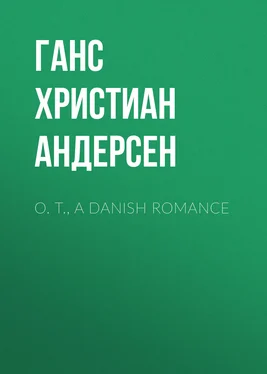

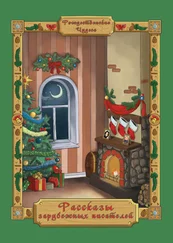
![Ганс Андерсен - Ганс Чурбан[другой перевод]](/books/95480/gans-andersen-gans-churban-drugoj-perevod-thumb.webp)
